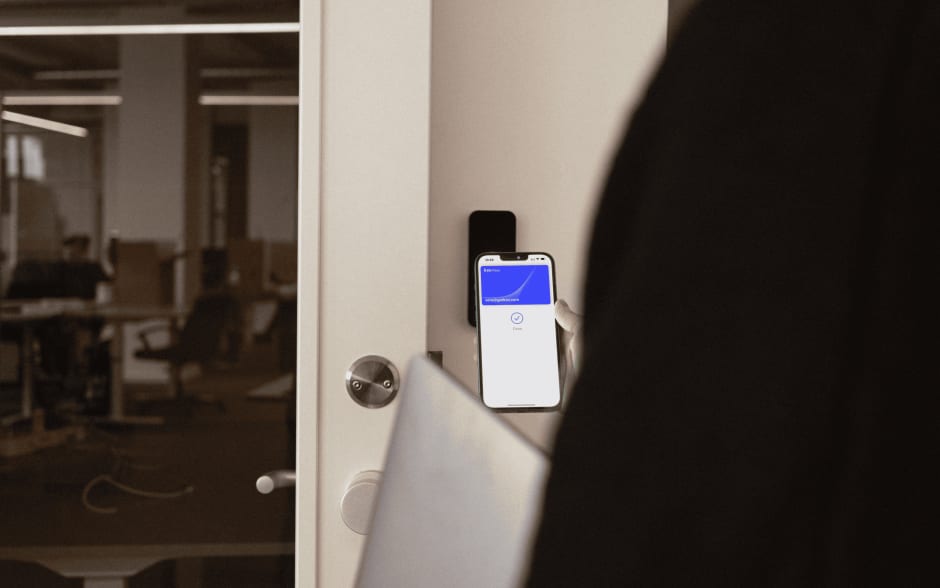In the early days of coworking spaces, monetization wasn’t front of mind. Rather than offering private offices, these spaces were open and community-driven. Today, monetization is crucial, but the challenge for coworking operators is how to achieve it without compromising the collaborative and community-driven essence that defines coworking spaces. Private offices now dominate the coworking landscape, so much so that private offices take up around 80% of the space allocation compared to 20% for open spaces. That’s no surprise given how much easier it is to develop profitable financial models for spaces with a densely-packed private office strategy.
As the popularity of coworking spaces has grown, competition has become increasingly fierce. As a result, leaders in the industry are driven to monetize their spaces to the extreme, but it’s not always clear how to go about it. These are some of the trending strategies that can help you monetize your coworking space without sacrificing the collaborative and engaging environment they were built upon.
Create communities to differentiate #
When people are looking exclusively for an inexpensive office, they come into a coworking space, shut their office door, and stay there the rest of the day. By the time they emerge, everyone else is gone and the chance to engage has passed. This goes against the fundamental ethos of coworking spaces, which are designed to foster community and collaboration. Creating spaces that move beyond isolation is vital to monetizing your coworking space while maintaining its original purpose, as engaged communities are more likely to generate sustained revenue.

Take advantage of engineered serendipity #
The fact that the coworking industry is now accessible to nearly everyone is great news, but it also means that you need to do something magical with your space to gain the interest and trust of members. When you want to stand out in a crowded field of coworking spaces, look for opportunities to create engineered serendipity, where members come together and form mutually beneficial relationships.
Unfortunately, owners of coworking spaces often ignore unmonetized areas where that serendipity can happen because they aren’t monetized, believing that they aren’t worth the effort. On the contrary, investing in unmonetized areas can significantly enhance overall revenue by driving monetization in private offices and other spaces, such as meeting rooms. The best way to keep everything in balance is to create monetized spaces that cover your expenses and then focus your attention on creating spaces that foster a sense of community for your members.
A broader definition of success #
Another common error is assuming that a coworking space is a success simply because occupancy rates are high. Even if offices are occupied, that doesn’t guarantee that members are happy or will stick with the space in the future. To get a deeper understanding of those factors, look at other metrics, such as how engaged members are with the community and additional benefits that you offer. Serendipity and member satisfaction go hand in hand, and they happen when people meet, work together, go to lunch together, and learn from one another. That can’t happen if you ignore the importance of unmonetized spaces.

Think beyond the private office #
When exploring monetization strategies that align with the community-driven nature of your coworking space, think beyond the private office. Get creative with other areas that can generate energy, excitement, and interest in your space. For example, consider adding a media studio where people can create content like podcasts. Offer members a certain number of credits to use the space, but also rent it out to outside parties at a higher rate.
The possibilities don’t end with a media studio. Depending on the size of your space and location, you could offer members a variety of other unique spaces. Consider concepts like a wellness studio where practitioners can meet with clients or a space with sinks where hairstylists can do their work. You could even rent out a “space” in your parking lot to a food truck. With ideas like these, you can create a marketplace ecosystem for your members while also attracting outside parties willing to pay a premium for your one-of-a-kind space—all while preserving the collaborative culture that makes your coworking space unique.
Avoid over-monetizing and keep it flexible #
As the coworking industry has become hyperfocused on revenue per square foot, some operators may find themselves overly rigid and short-sighted by focusing too narrowly on this single KPI. If you constantly try to get more out of your members, you’ll become known for nickel-and-diming rather than for offering a productive, high-quality space. While monetization is essential to your long-term success, it’s important to be reasonable and realistic. Charging extra for every little thing is a fast way to alienate members.
In addition to taking a measured approach to your monetization, you should also aim to maximize flexibility. The modern workforce is looking for versatile and customizable options in every area of life, from rideshares like Uber to vacations through Airbnb. Customers only want to commit to what they’re actually going to use so that they don’t feel trapped. De-emphasizing year-long contracts and instead offering flexible officing by the hour, day, or month enables members to make the choices that are right for them.

Prioritize quality staff #
When you’re working to build a positive culture and community in your coworking space, your staff are an important piece of the puzzle. Hiring a front desk attendant to answer questions and concerns from members is useful, but it doesn’t address the heart, engagement, and humanism that make your community run smoothly. Rather than employing a gatekeeper, look for a highly trained community manager or coworking executive.
A skilled manager oversees daily operations, ensures member satisfaction, plans community-building events, and drives marketing efforts, in addition to:
- Running your coworking platform
- Generating reports
- Stocking the kitchenette area
- Managing offices, meeting rooms, memberships
- And much more!
In short, this individual is responsible for managing the entire space and promoting operations excellence. For your coworking space to truly succeed, you need someone with experience in the industry, strong leadership, and a deep understanding of what makes a coworking space thrive.
Leverage technology #
Technology is the enabler that allows for monetization and contributes to building the culture of your coworking space. When planning your space, look for tools and solutions that make monetization easier, particularly when it comes to access control.
An access control system is essential to your coworking space. It serves as the lever that allows you to monetize a room. If you can’t lock a space electronically and unlock it through a payment mechanism, people will naturally use the space as if it’s free. Implementing access control thus offers enormous value in the long term by serving as the gateway toward monetization.
Access control also allows you to gather important data and run reports. When trying to reach stabilized occupancy and revenue, it’s critical to know how many people are accessing each monetized area. An access control solution gives you these insights so you can improve your decision-making and allocate resources appropriately.
Occupancy sensors can also contribute to improved monetization. For example, imagine that your space is used to host an event with 50 guests. You may not be able to convert each of those attendees into paying members, but knowing how many people are attending allows you to plan more strategically for the space moving forward.

Optimizing coworking businesses with a strategic framework #
At the core of every successful coworking business lies a well-structured foundation. Whether you’re starting a new venture or refining an existing one, the Coworking Blueprint offers a strategically integrated management system designed to optimize both monetization and community effectiveness. It also serves as a versatile framework designed to upgrade traditional commercial office assets to the coworking business model, from concept to ongoing operations.
This Blueprint integrates best-in-class management systems across operations and community, technology, and sales and marketing, making it scalable for any stage of a coworking business. A key driving force behind the strategy is the reliance on a thorough feasibility assessment, guided by a coworking pro forma, providing clarifying focus on how to balance monetization goals with delivering a distinctive user experience.
To bring this system to life, a supportive Fractional Coworking Executive can work closely with your staff to implement and manage these integrated systems, ensuring that your space not only thrives financially but also frees up your team to focus as much as possible on the community elements of coworking, leveraging them in the most effective way.
Bringing together culture and monetization in coworking spaces #
With traditional office vacancy levels reaching all-time highs, the coworking model offers a promising solution for the commercial real estate industry. By leveraging coworking business models, building owners can monetize their properties in new ways, providing a sustainable approach to saving highly vacant office square footage. When building owners realize that they can convert buildings they’re struggling to rent into flexible leasing and coworking spaces, they’ll open up doors to additional revenue and enhance their ability to evolve over time.
Through it all, it’s crucial to remember that culture and monetization don’t have to be at odds in coworking spaces. There’s a way to unite them, but it requires a thoughtful approach and consideration of what members want and need, along with a streamlined methodology to deploy successful operations. Coworking spaces thrive on collaboration and community, and by carefully balancing monetization with these core values, you can ensure long-term success and a loyal, engaged member base.

David Walker
Recognized as an early pioneer of the coworking movement, David Walker has 16 years of leadership experience helping shape the evolution of the industry. As the Founder of CoworkingConsulting.com LLC and the creator of CoworkingBlueprint.com, David has established a collaborative partner ecosystem and platform for coworking business development stakeholders. He advises commercial real estate asset owners, managers, and coworking operators across the globe.


